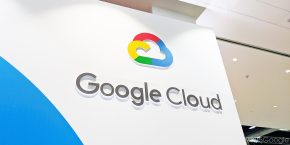
Google Cloud last year became the first major non-telecom company to build a private intercontinental cable. Its third project is named Equiano and connects western Europe to the west coast of Africa.
Announced today, it starts in Lisbon, Portugal and will first branch to Lagos, Nigeria. Additionally branching units can extend connectivity to additional African countries, with the subsea cable ending in Cape Town, South Africa. Google will work partners to bring Equiano’s capacity to more countries.
Google signed a deal with Alcatel Submarine Networks in Q4 2018 to build the cable, with the first phase of the project from Portugal to South Africa completed in 2021. By completely funding the cable, Google can expedite construction and “optimize the number of negotiating parties.” The company still plans to buy capacity on existing cables or enter consortiums in other parts of the world.

Equiano leverages space-division multiplexing (SDM), which results in 20 times more network capacity than the last cable that served the region. This technology is also in use on Dunant, Google’s second private cable spanning the Atlantic Ocean to connect the U.S. and France.
Traditional subsea cables are powered from the shore end and rely on a dedicated set of pump lasers to amplify the optical signal for each fiber pair as data traverses the length of the cable. Now, SDM technology allows pump lasers and associated optical components to be shared among multiple fiber pairs, while still working within the unique power constraints of the ocean floor.
This newest cable also incorporates optical switching at the fiber-pair level. Compared to traditional wavelength-level, this “greatly simplifies the allocation of cable capacity.”
Previously cables were named after chemist Marie Curie and Red Cross founder Henry Dunant. This one is a tribute to Olaudah Equiano, an 18th century Nigerian-born writer and abolitionist who was enslaved as a child.

FTC: We use income earning auto affiliate links. More.


Comments